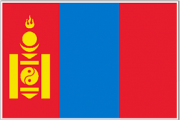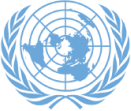SEVENTY FIRST SESSION OF THE UNGA
THIRD COMMITTEE
5 October 2016
New York
STATEMENT BY H.E. MR. SUKHBOLD SUKHEE, AMBASSADOR PLENIPOTENTIARY AND EXTRAORDINARY, PERMANENT REPRESENTATIVE OF MONGOLIA TO THE UNITED NATIONS ON AGENDA ITEM 26 - SOCIAL DEVELOPMENT
Madame Chair,
As we are taking the floor for the first time, let me begin by extending my delegation’s earnest congratulations to you and other colleagues in the Bureau on your unanimous election. We are confident that Committee will have effective deliberations under your skillful leadership.
We would like to thank the Secretary-General for the comprehensive reports submitted under this agenda item. The reports elaborated extensively the current situation of the world social development, including questions relating to the social situation and to youth, ageing, disabled persons and the family.
My delegation associates itself with the statement made by the distinguished representative of Thailand on behalf of the Group 77 and China.
Madame Chair,
Just a year ago, the world leaders who gathered at the United Nations Summit approved the Agenda 2030 for Sustainable Development with a hard, but imperative vision to leave no one behind.
The Secretary-General precisely underlines in his report that development will not be sustainable unless it is inclusive. However, reaching all segments of society has always been challenging and people-centered policies and programs had uneven results in all corners of the globe.
Hence, there is an indispensable need to examine the nexus of interrelated factors, such as poverty reduction, employment and decent work, importance of fostering social justice and equality, inclusion of all people in social, economic and political processes, outlined in recent studies and reports.
Madame Chair,
There is an inextricable linkage among the internationally agreed social development goals. The visions and unfinished agendas of the Copenhagen Declaration and Programme of Action for Social Development and the Millennium Development Goals have become integral to the 2030 Agenda for Sustainable Development, Addida Abeba Action Agenda and Paris Agreement.
At national level, we are aligning social development policy and programmes with global trends in a timely manner.
Following the global Agenda 2030 for Sustainable Development, the national parliament of adopted the Mongolia Sustainable Development Vision 2030 in February 2016.
The objectives of the sustainable social development of Mongolia till 2030 will be to ensure gender equality, improve the quality of and access to health care services, create a healthy, safe living environment for the citizens, improve public awareness on health education, provide equal education of high quality to every citizen, build a national system for lifelong education, end all forms of poverty, and increase the share of middle- income classes sustainably and consistently.
Madame Chair,
The Government Action Plan for 2016-2020 launched in August 2016 will be the first stage of the implementation of the Mongolia’s Vision 2030.
In 2016-2020, the Government prioritizes family support, poverty reduction, employment generation, improvement of living standards of citizens through creating an enabling environment for health, education and employment of citizens, increasing the share of middle income households and improving social protection of citizens.
In urban areas, more schools and nurseries will be built to meet demands of rapid urbanization and students will continue to receive monthly stipends and use school bus or public transport for free. In rural areas, school attendance of herders’ children will be supported and dormitory facilities for them will be substantially enhanced.
The policy in relation to health sector will be focused on advancing methods of diagnosis, improving public health education and implementing a national programme on the prevention of communicable and non-communicable diseases. A wide range of capacity-building activities are planned for medical personnel.
Madame Chair,
There is a growing recognition of the importance of strengthening not only the social, but also the economic and environmental dimensions of sustainable development. This is particularly true in financing for social development as social sector always need for the state subsidies and resources and cost-sharing from other sectors.
The Government of Mongolia is paying a particular attention to funding of the abovementioned and other activities. For instance, in 2016-2020, families with three or more children studying simultaneously in universities will be able to apply for the state support and Education Loan Fund will be established. There is a plan to increase public financing for developing academic research and innovation and to motivate innovation and technology development through a results-based funding system.
The funding system of the health sector will be gradually increased twofold and a special fund will be established for the support of the health sector.
Moreover, legal environment of culture and sports will be refined and access to and quality of art and sports services and facilities will be upgraded.
Madam Chair,
At the end, as a main sponsor of the bi-annual General Assembly resolution on "Literacy for Life: Shaping Future Agendas", using this opportunity, my delegation underlines the importance of literacy as it empowers individuals and forms an integral part of transformative learning for realizing more inclusive, just and sustainable societies.
Mongolia reaffirms its commitment to the vision to leave no one behind enshrined in the 2030 Agenda and to people-centered approach to development, reaffirmed at the World Summit for Social Development, with a particular emphasis on integrated policy frameworks for tackling inequalities.
Thank you for attention.


